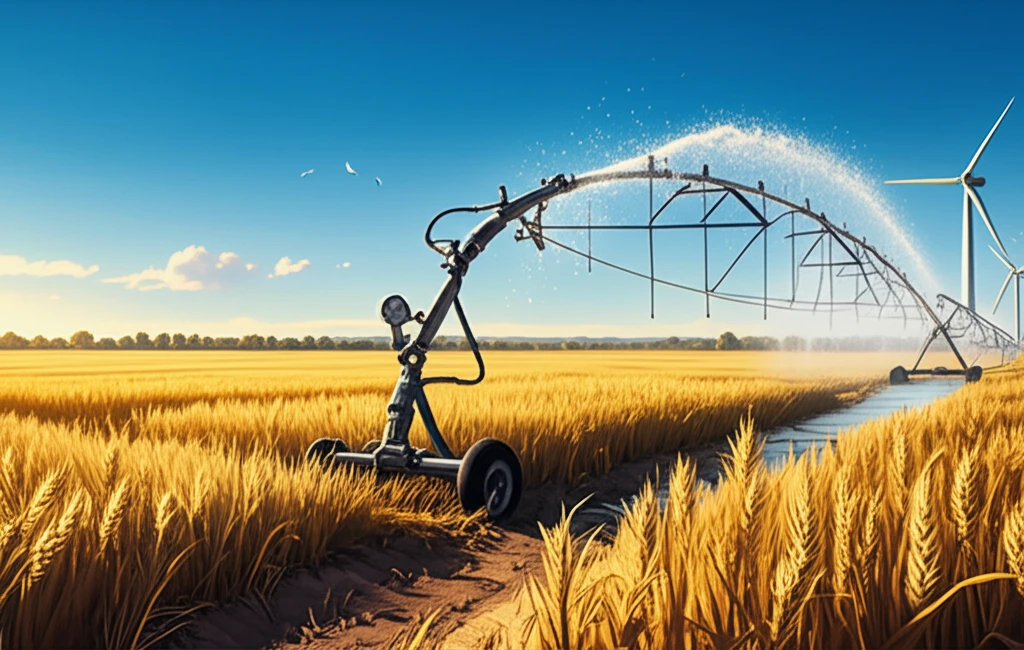
Turning Wastewater into Wheat: A Sustainable Farming Solution?
"Explore how using treated wastewater in wheat cultivation can help conserve resources and boost crop yields. Dive into the future of sustainable agriculture!"
In a world grappling with increasing water scarcity and the environmental impact of traditional farming methods, innovative solutions are more critical than ever. Agriculture, a sector heavily reliant on freshwater resources, faces immense pressure to adapt and evolve. One promising approach gaining traction is the use of treated wastewater for irrigation, particularly in staple crops like wheat. This method not only addresses water shortages but also offers a sustainable pathway to reduce the reliance on synthetic fertilizers.
Wheat, a cornerstone of global food security, is cultivated extensively worldwide. Traditional wheat farming often involves significant inputs of freshwater and chemical fertilizers, contributing to environmental degradation and resource depletion. As populations grow and climate patterns shift, the need for more efficient and eco-friendly farming practices becomes increasingly urgent.
Recent research is shedding light on the potential of treated wastewater to revolutionize wheat cultivation. By carefully managing wastewater irrigation and optimizing fertilizer use, farmers can achieve higher yields while minimizing environmental impact. This approach represents a significant step towards sustainable agriculture, offering a blueprint for other water-stressed regions to follow.
How Can Wastewater Irrigation Transform Wheat Cultivation?

The practice of irrigating crops with wastewater is not new, but advancements in treatment technologies and a deeper understanding of plant nutrient requirements have enhanced its effectiveness and safety. Treated wastewater contains valuable nutrients such as nitrogen, phosphorus, and potassium—essential elements that plants need to thrive. By utilizing these nutrients, farmers can reduce their dependence on costly and environmentally harmful chemical fertilizers.
- Reduced Fertilizer Use: Wastewater provides essential nutrients, cutting down on synthetic fertilizer needs.
- Water Conservation: Reusing wastewater reduces the strain on freshwater resources.
- Improved Crop Yields: Optimized irrigation can lead to increased wheat production.
- Environmental Benefits: Less fertilizer use means reduced pollution and a smaller carbon footprint.
- Cost-Effective: Lower fertilizer costs and efficient water use can improve profitability.
The Future of Farming: Sustainable and Efficient
As the world's population continues to grow, and climate change intensifies, the need for sustainable agricultural practices will only become more pressing. Wastewater irrigation represents a promising pathway towards achieving food security while minimizing environmental impact. By embracing innovative solutions and carefully managing our resources, we can create a more resilient and sustainable future for agriculture.
